“An American Pickle” Should Have Stayed in the Jar
Wacky antics ensue when a 100-year-old Jewish man wakes up from a pickled hibernation in the modern world.


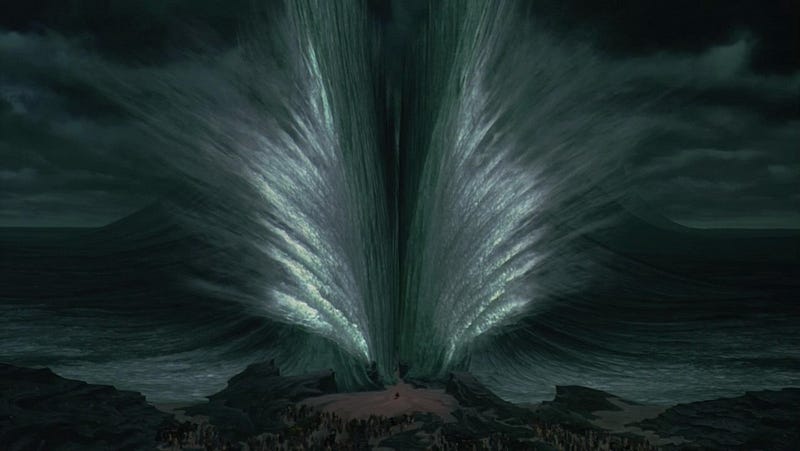
As it’s the week of Passover, I thought it would be appropriate to talk about The Prince of Egypt. This is a beautifully animated film done by DreamWorks. Yes, the same studio who brought us Shrek and Kung Fu Panda. Now, I love those films, but I think The Prince of Egypt is one of the studio’s best.
The film follows the biblical story of Moses, from his time as a prince of Egypt, to a leader for the people of Israel. It’s a film that works brilliantly in animation, and is one that both children and adults can; enjoy despite its religious contexts, it is friendly to general audiences.
The film centers a lot on the relationship between Moses (Val Kilmer) and Ramesses (Ralph Fiennes). We watch how they grew up as brothers, and become rivals when Ramesses becomes Pharaoh and refuses to free Moses’s people (the Hebrews) from slavery. Their conflict makes for intriguing drama, and Rameses is a compelling villain as we see him struggle to live up to his father. You certainly don’t want to root for him, but sometimes you can’t help but feel sorry for him.
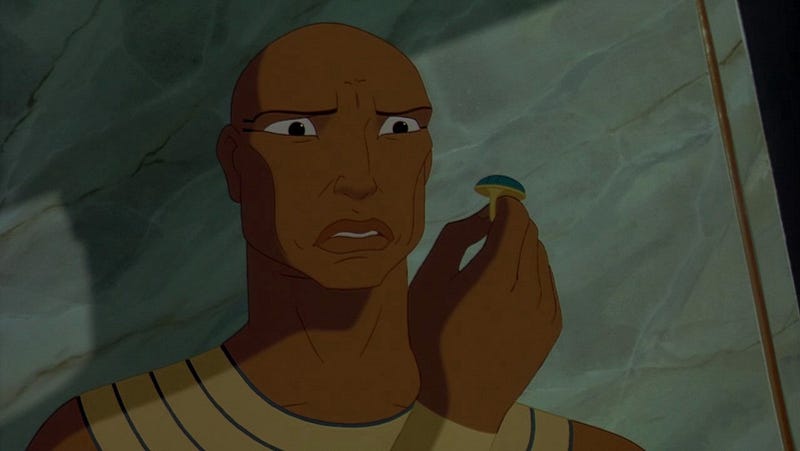
During one scene, Moses had returned from his time in the desert after fleeing Egypt, and tells Ramesses that he has to free the Hebrew slaves. The slaves had been building massive and ornate structures for him, and they’ve been suffering through the years. However, Ramses doesn’t comprehend the damage that he’s causing, or care. Moses also returns a ring that was a gift from Ramesses, cutting the ties to his former life.
Ramesses takes a few moments to process this. He hadn’t seen his brother in years, believing that he was dead. Now that he’s back, there was a glimmer of hope that things would turn back to normal. But when Moses returns as a savior for the Hebrews, rather than the prince that he once was, Ramesses’ sorrow turns to rage.
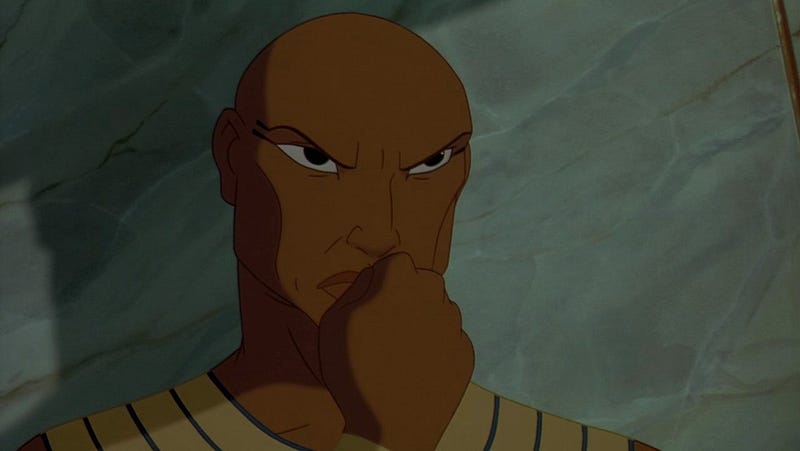
Just look how furious he is; it’s to the point that it’s frightening. The scene itself is fantastic as we bear witness to the start of the brothers’ conflict, and dread to witness Ramesses’ wrath. Again, just looking at his face makes you want to run. The animators conveyed emotions through facial expressions perfectly.
The animation overall is simply superb. The scope and size of Egypt is impressive and you’re really drawn into the setting.
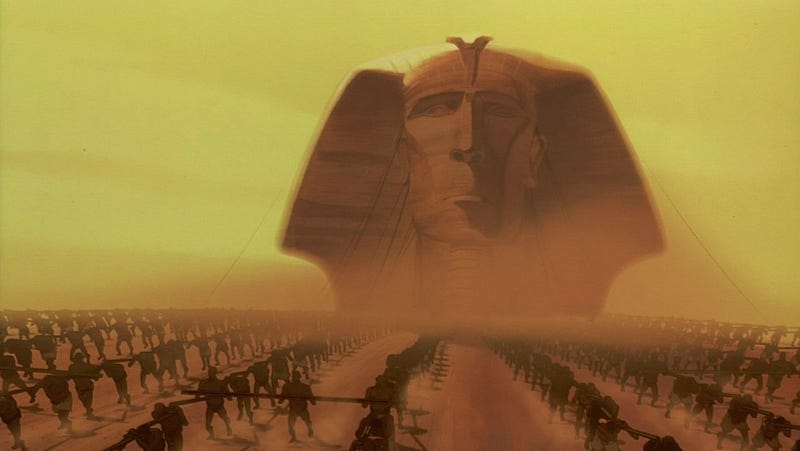
Really, the whole opening is one of the best in animation. While the enslaved Hebrews are working to the point of collapse, we’re treated to the song “Deliver Us,” in which the Hebrews pray to God for freedom. While that’s going on, we cut to Moses’s family escaping a massacre of the newborn Hebrew men.
Moses is only a baby at this time. His mother, Yocheved (Ofra Haza) places him in a basket, allowing him to escape across a river. When she does this, she sings her own portion of “Deliver Us” as a lullaby. Fun fact: Ofra Haza voiced Yocheved in seventeen languages of the movie, including Hebrew, Greek and Norwegian. It’s a shame that she’s not in the movie for long, as she has a beautiful voice. Plus, there’s the unfortunate fact that there’s barely much diversity in this film…which is set in Ancient Egypt.
Yeah, a majority of the cast is Caucasian. It never really bothered, me as the cast does a brilliant job bringing these characters to life. Sir Patrick Stewart voices the Pharaoh, Seti, and he has such an intimidating air while speaking. Then we have Sandra Bullock voicing Moses’s sister, Miriam, and she gives off a sweet and caring persona. I suppose the only jarring performances are Martin Short and Steve Martin who voice two Egyptian priests. They serve as the comic relief, but they don’t appear much in the movie so it’s not that bad.
It would’ve been appropriate to have more POC, but I don’t think it hurts the film that they didn’t take the approach. Again, the performances that we got are great, and I didn’t even mention the fact that God’s in this, also played by Kilmer. Val Kilmer speaks his lines confidently as Moses, but performs in a calming tone to give God a benevolent and soothing appearance.
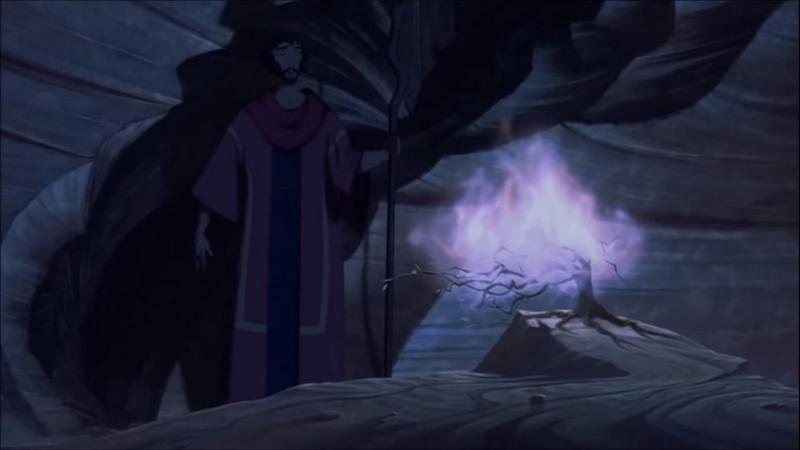
With great performances comes great music. Hans Zimmer composed the score, and there are eight songs through out the film. I’ve already mentioned “Deliver Us,” but there’s also “Through Heavens Eyes” and “When you Believe” which are great uplifting songs, but my favorite is “The Plagues”.
“The Plagues” is sung by Ralph Fiennes and Amick Byram (the singing voice of Moses) and they’re in conflict with each other while God is giving Egypt actual hell. He sent down several plagues such as lice and famine to push Ramesses to free Moses’s people, but the pharaoh won’t budge.
It’s not only a powerful song, it’s also a visually stunning sequence. Egypt is on fire, people are screaming, livestock is dying, but no matter the chaos Ramesses is too prideful to change his mind. This all culminates in the last plague, in which all the loud chaos turns to a haunting silence as the Egyptians suffer a massive loss in the final plague.
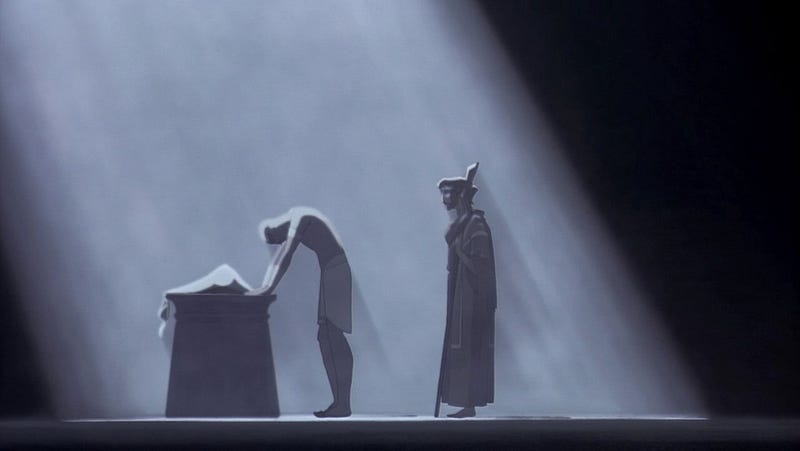
Overall, Prince of Egypt is an amazing film with excellent animation, characters with well-rounded personalities, memorable songs, and an immersive story that really pulls you in. It’s a shame that DreamWorks doesn’t make hand drawn animation anymore, and it’s a shame that they don’t take bold risks as they used to.

Originally published by by Lauren Massuda on April 10, 2020
Related lists created by the same author
Wacky antics ensue when a 100-year-old Jewish man wakes up from a pickled hibernation in the modern world.
Related diversity category
My Beautiful Laundrette is often referenced as a positive LGBTQIA+ film because our two main characters are in a homosexual relationship with no shame, fear of violence or criticism. The struggle is not their sexuality. It is the treatment of the Pakistani citizens in England.
Related Movie / TV / List / Topic
A young woman finds herself trapped in a crossfire of awkwardness during a nightmarish dinner party with her boyfriend's dysfunctional family.